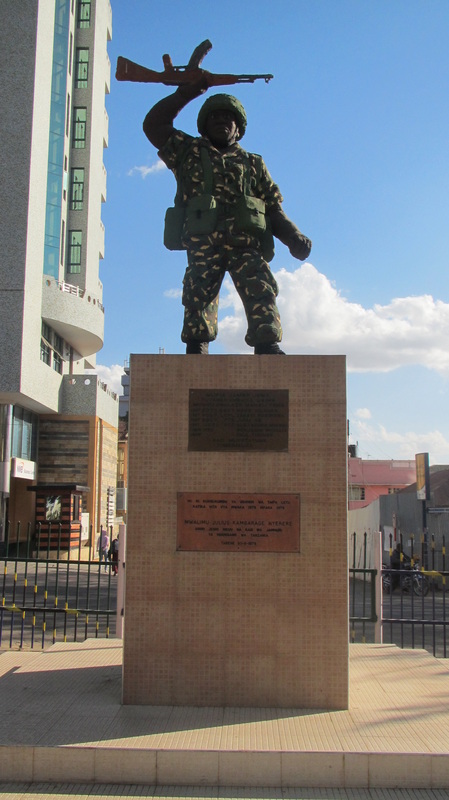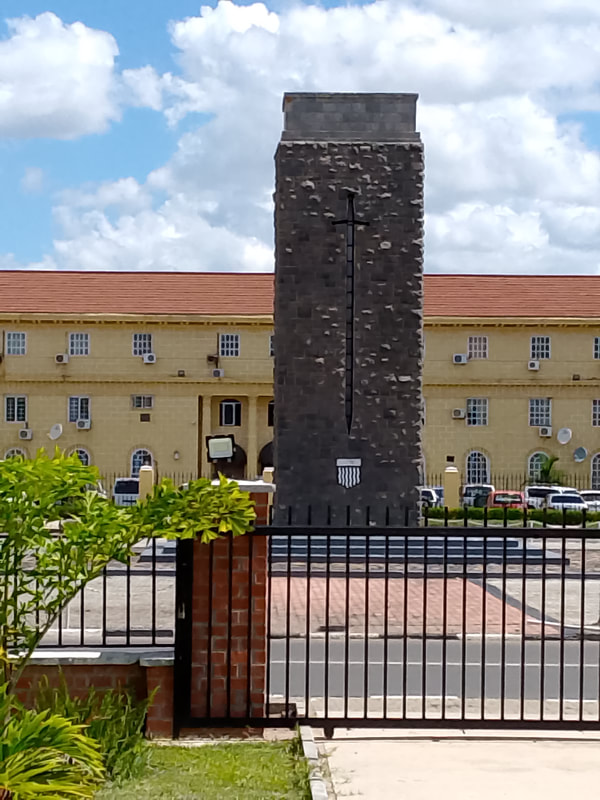From an international standpoint, Walmart's big jump into Africa should make many other North American firms take notice, and not just in retail. When a world leader in its field turns to Africa, then something must have changed to attract them there. Marxists would argue that capitalism must expand to survive, and Africa represents the last frontier market for retail. But capital does not pursue profit-less endeavours, and retailers are among the most risk-averse businesses (how many standard US retailers even view Canada as too risky a market?). South Africa may still have significant problems, but the gradual rise of a middling market there and in many other African economies cannot be ignored. Walmart will mark a tipping point for consumer oriented firms to discover that Africans want their stuff.
|
Walmart announced today that it was making its first move into Africa. The conservative yet internationally aggressive retailer announced it has offered a non-binding expression of interest to take over South African chain Massmart Holdings Inc for US$4.6 billion. Massmart operates 290 stores: the majority are in South Africa, but they have a presence in 12 other African countries (ranging from Botswana and Namibia to Tanzania, Mauritius, Ghana, and Nigeria). Given the already strong trade links between South Africa and China--one of Walmart's primary sources of goods for its stores globally--incorporating existing supply chain management systems into its new acquisition will not be a diffcult adjustment. Dealing with South Africa's unions, however, may be. They have promised to honour existing agreements and may face well mobilized union and civil society campaigns as they've experienced elsewhere. But if Walmart can find a way to close the deal and drive down even further the costs of goods for South African consumers they may be able to weather the initial response against them. Massmart already achieved a BBBEE (black-empowerment) score of 66% in 2010, likely the highest in South African retailing. They may also improve the overall quality of low end retail service through their competitive presence. But Walmart will have to tread carefully in a highly charged political economy where majority expectations remain unmet 16 years after the Mandela's 1994 election victory, and fissures within the ANC are in an expansionary period.
From an international standpoint, Walmart's big jump into Africa should make many other North American firms take notice, and not just in retail. When a world leader in its field turns to Africa, then something must have changed to attract them there. Marxists would argue that capitalism must expand to survive, and Africa represents the last frontier market for retail. But capital does not pursue profit-less endeavours, and retailers are among the most risk-averse businesses (how many standard US retailers even view Canada as too risky a market?). South Africa may still have significant problems, but the gradual rise of a middling market there and in many other African economies cannot be ignored. Walmart will mark a tipping point for consumer oriented firms to discover that Africans want their stuff.
0 Comments
When Prime Minister Harper delivers a speech at the UN, something must be up. Two in three days, and there must be something really big going on (a short speech to the MDG conference on Tuesday focused on maternal health and increased Canadian contributions to the Global Fund on Aids, TB, and Malaria). Back to the UN GA today for only the second time since his first appearance in 2006, the same year he was elected, Harper is in full court press campaign mode. And that is on a campaign which, given historical and current circumstances, should not have to be fought.
Canada has regularly been on the Security Council about once a decade since the founding of the organization. As a charter member, as a significant contributor to both the operating and special budgets of the UN, as an instigator of peacekeeping operations (see the Suez Crisis in 1956 and Lester Pearson's subsequent Nobel Peace Prize in 1957), as once a leading military and financial contributor to those missions, and as a multilateral player in numerous arenas (including the G8, G20, NATO, Commonwealth, and francophonie), Canada's diplomatic impact was often characterized as "hitting above its weight." But that description seems to have fallen away, not solely due to the Harper government but certainly not helped by it. Now, Canada cannot rest on its laurels and expect its turn at the Security Council table every decade or so. This year, Germany and Portugal are also in the running for the two seats available for the "Western European and other countries" category. Germany appears to be a lock. Until the recent financial crises in Portugual, the second seat remained contested. Canada launched its behind-the-scenes campaign in earnest a couple of years ago, but policy after policy (from the stronger positioning behind Israel in the Middle East to the decrease in the number of African priority countries) undercut Canadian diplomatic efforts to secure voting commitments. Portugal has been an increasingly active player across Africa. It can count on much European support. Its close ties to Brazil are in strong contrast to regular Canadian-Brazilian competition and trade conflicts in the aerospace field. Portugal can portray itself as a good representative of smaller countries, a better reflection of most of the UNGA's constituent members. Canada, conversely, has only the Carribean as its semi-regional support base. At the recent G8/G20 summits Canada displayed none of the leadership that it did at Kananaskis in 2002. The current government has alienated many once close African friends. The Arab states, and perhaps many others with a Muslim majority, look warily at Canadian policy which now seems more unabashedly pro-Israel than even that of the US. Not enough differentiation from American policy has been made over the last few years to convince the world that a vote for Canada to the SC will ensure a non-American, non-European independent voice for the next two years. "Enlightened Sovereignty" became the Prime Minister's slogan in January at the World Economic Forum in Davos. He reiterated that theme today, stressing that all members of the international community are in the same boat: we all sink or swim together. What countries do domestically matters for the international system. Global good must be considered in all aspects of policy-making, with trade protectionism held up as the prime example of what not to do in a crisis. Sloganeering aside, there is not much new behind the concept of enlightened sovereignty, and certainly no specific actions of this government can be traced to any new international orientation besides the SC vote. Harper is a domestic policy wonk. In foreign affairs, his attentions are on the USA. Foreign affairs are an annoyance; the expenditure of blood and treasure in Afghanistan is the price to pay for keeping out of Iraq. But despite the shortfalls of a four year decline in Canadian reputation abroad, Canada will likely defeat Portugal for the second seat. That will have nothing to do with the Harper government: Canada survived the global banking crisis given regulatory frameworks and historical economic policy decisions in place long before this government. Portugal's macro economic health, on the other hand, is rather suspect. Thus, on October 12th it is more than likely that Canadian's current reputation as a financially stable and conservative jurisdiction (and the fiscal flexibility to keep supporting the UN and ODA budgets that enables) and its historical reputation as a multilateral player will make the difference. Next time around, perhaps Canadian diplomats will be given the best ammunition for a SC campaign: not a slogan but a vision, a real reason for UN members to recognize that Canada is bringing more to the table than a dusty reputation and an expectation that, every decade or so, we get our place at the adult's table. NOTE: Canada indeed lost the vote to Portugal that year, and has not run again for a seat on the UNSC since (through to fall 2014). At the UNGA today, each of President Obama and Prime Minister Harper had the podium. In the American case, the President reiterated his new vision on development: to make it a priority to reach out to open, democratic states as targets of increased economic assistance (the theme he addressed at the MDG session yesterday). He urged other states to work towards being open democractic societies, with transparent , representative governments and open economies. He also urged them to spread the word and not shy away from pressuring their friends and neighbours to move in these directions. Raising Development as a third significant pillar to be equivalent to Defense and Diplomacy is a policy issue this administration has been working on for months.
Couched in much different language than Bush's "for us or against us" and "axis of evil" speeches after 9/11, and embedded in language of support for the UN, rules, and multilateral action, the President's message specifically on development did not, ultimately, differ significantly from those of JFK, Nixon, Clinton, or even Bush. However, the new reorganization and upliftment of Development in Washington underscored the overall tone and forthrightness of this president, one who resonates much stronger internationally than his predecessor. His voice on development also carries more weight given the drawdown in Iraq, his intensive focus on the Middle East, and even his African heritage. His language reflects the same American values of liberty and opportunity but within a much more acceptable framework of global peace and prosperity. There have not been any noticeable shifts in the developmental institutions that Obama inherited from Bush: MCC continues as does PEPFAR and Africom. But change is coming in terms of overall strategy and coherence, targetting of resources to countries meeting democractic, economic reform, and human rights expectations, and new initiatives. A review of the history of US development thinking and implementation since the Marshall Plan illustrates too many examples of new initiatives and strategic reorganizations to become too hopeful. Exporting democracy, good governance, and liberal capitalism remains an elusive aim. During the Cold War security issues often overrode development and human rights concerns. There is evidence that the War on Terrorism continues that same trend (e.g., worrying Ethiopian trends). Overall, this is a laudable Obama initiative in an international policy area where some bipartisan support will be forthcoming. But both the ideas underpinning development and the political and bureaucractic realities of Washington--not to mention developing countries--precludes this initative from having the real impact on the ground that the administration, presumably, expects. |
AuthorChris WJ Roberts is a Canadian international business and policy consultant; a student of African politics, international relations, and Canadian foreign policy working towards a PhD in political science at the University of Alberta; and an instructor in political science at the University of Calgary since 2014 Archives
February 2016
Categories
All
|



 RSS Feed
RSS Feed
